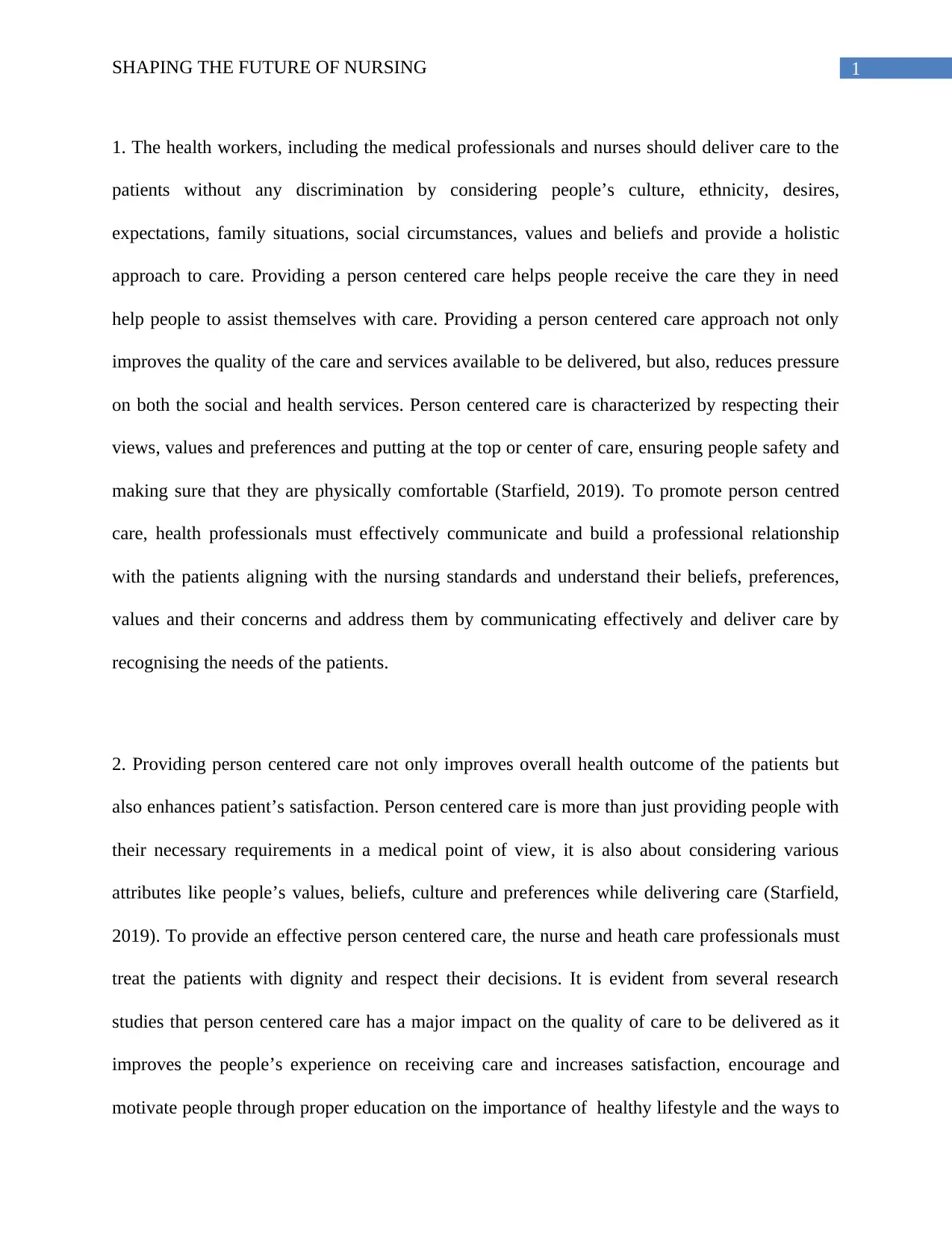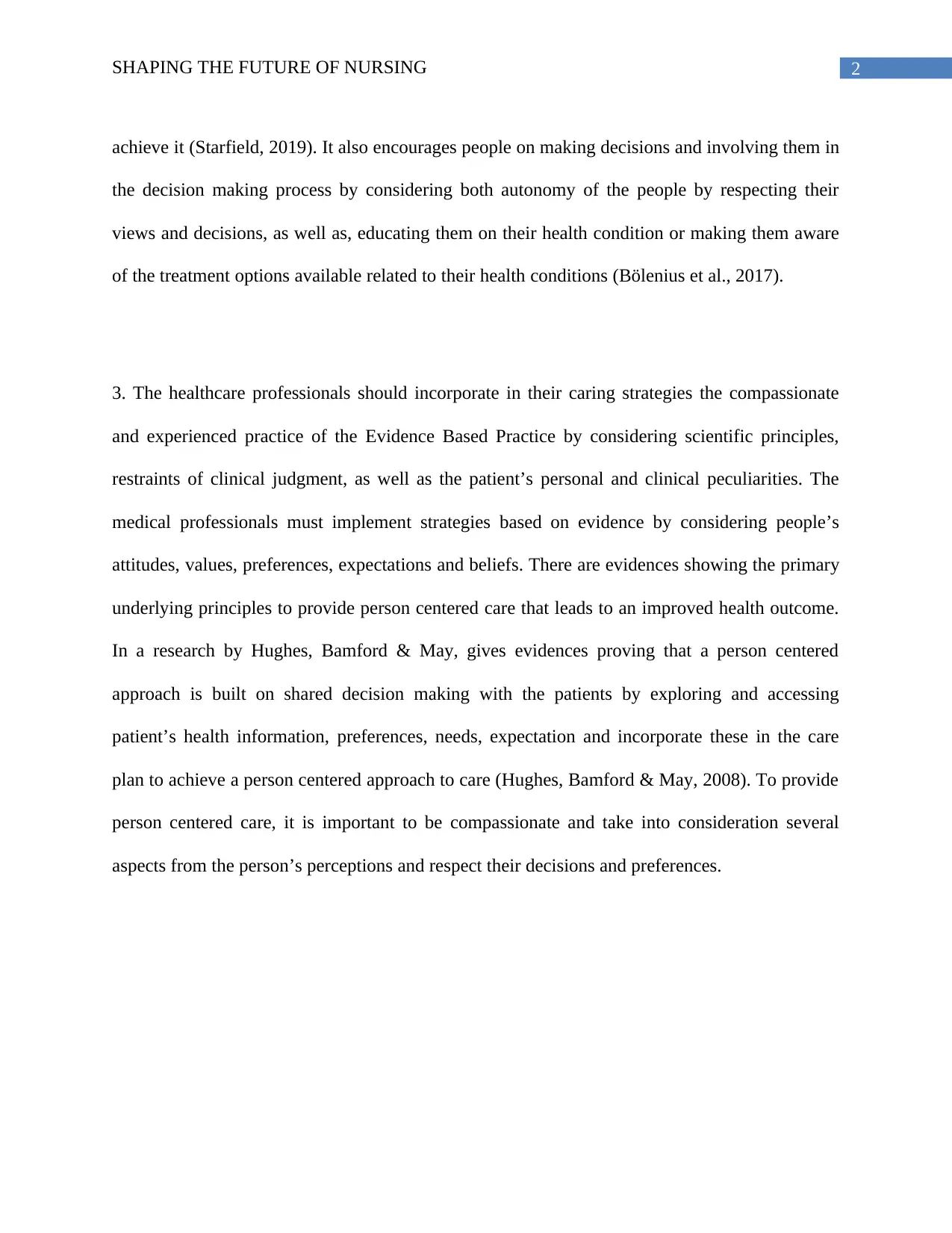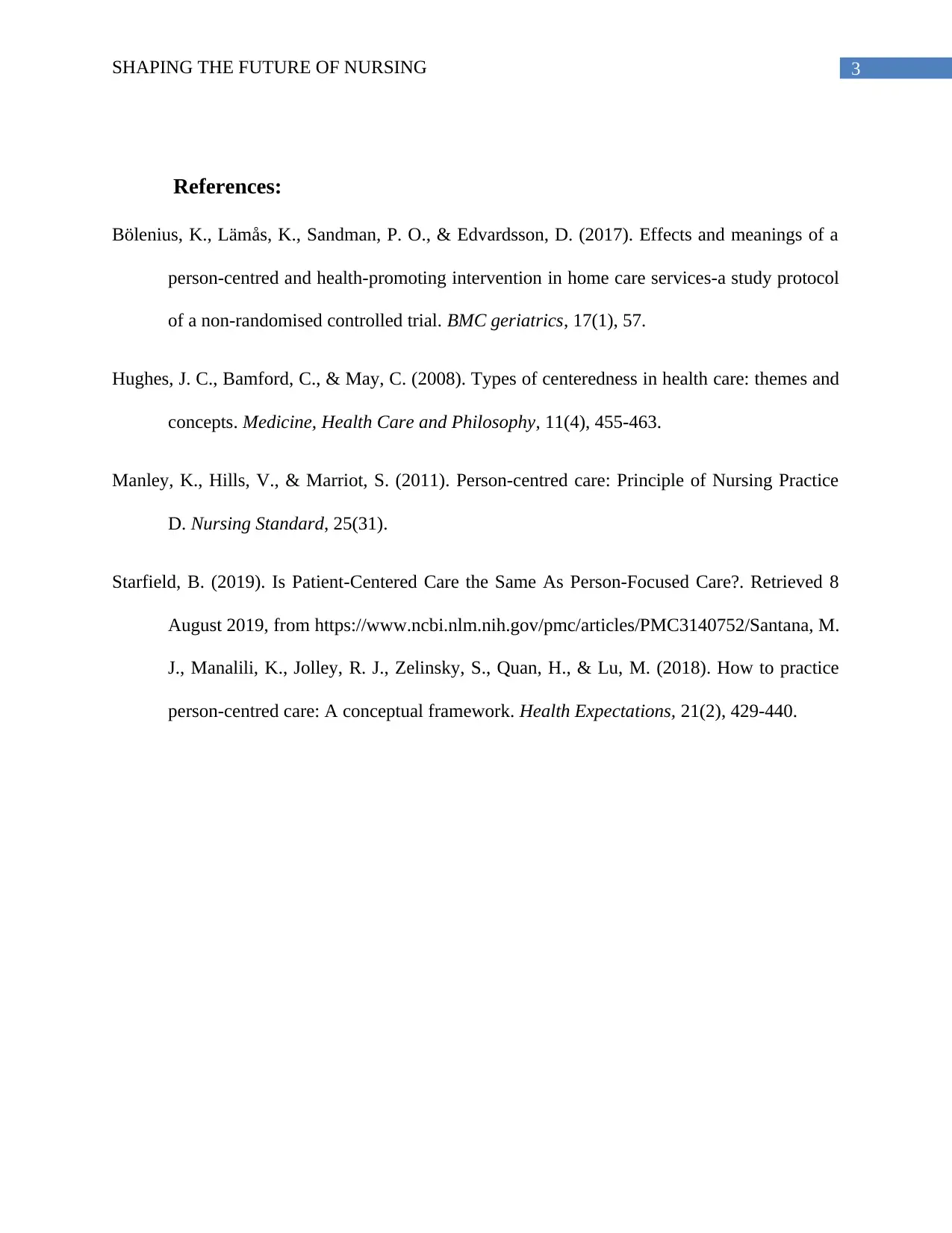Shaping the Future of Nursing: Person-Centered Care in Healthcare
VerifiedAdded on 2022/10/06
|4
|838
|439
Essay
AI Summary
This essay explores the concept of person-centered care in nursing, emphasizing the importance of delivering healthcare that respects patients' individual values, beliefs, and preferences. It highlights the significance of effective communication and building professional relationships to understand and address patient needs, ultimately improving both the quality of care and patient satisfaction. The essay discusses the application of evidence-based practice and compassionate care strategies, incorporating scientific principles, clinical judgment, and patient-specific considerations. It references studies that support the benefits of shared decision-making, incorporating patient information into care plans, and promoting patient autonomy. The paper underscores the impact of person-centered care on health outcomes, patient experiences, and the encouragement of healthy lifestyles.
1 out of 4










![[object Object]](/_next/static/media/star-bottom.7253800d.svg)